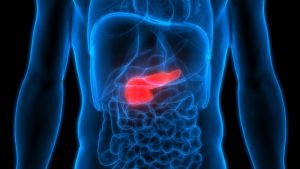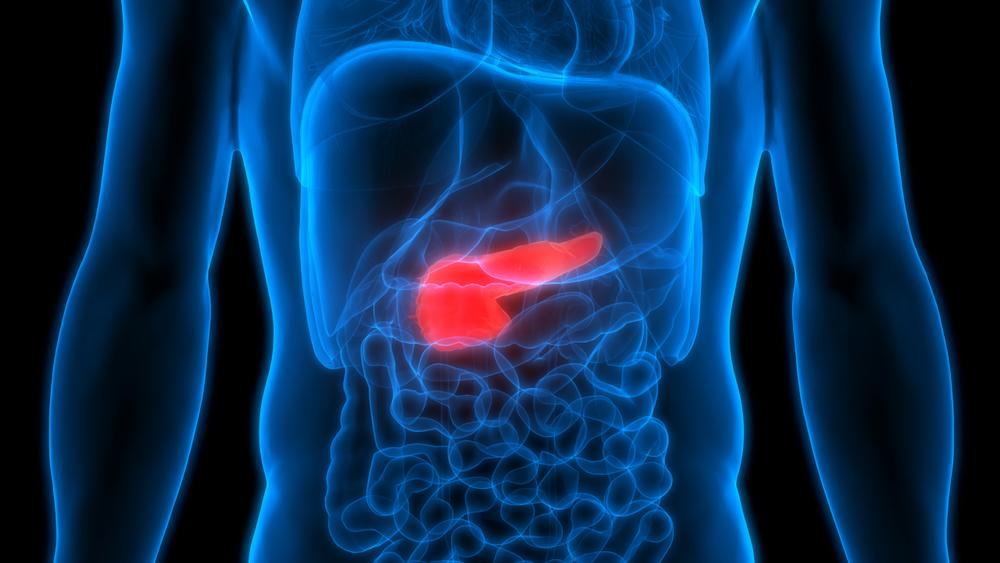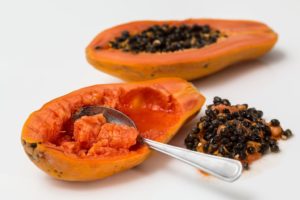
Authored by David Wolfe
Proteases are one of three main types of digestive enzymes that your body needs. While we explored the other two in detail within our ‘what are enzymes‘ article, to summarize, the other two enzymes are lipase, which helps your body digest fat, and amylase, which helps your body process starches and glycogen.
Proteases fall under the category of proteolytic enzymes, which are enzymes that not only help your body process protein but aid in dividing cells, forming blood clots, maintaining your immune system and more. (1)
In this article, we’ll be referring to proteases as a whole category. But here are the four main classes of proteases so you know what to look out for on ingredient labels and the like:
- Serine
- Cysterine
- Aspartyl
- Metalloprotease
Now, for practical purposes, what you need to know is that all of these protease classes achieve the same thing. They just do it in different ways. Think of it as akin to how an electric car and a standard one will both get you from point A to point B, just using different mechanisms.
Where Does Protease Come From?
Your pancreas produces an inactive form of protease naturally. It’s only after this inactive protease interacts with the enzyme trypsinogen that your body can use it for the above purposes. (2)
In addition to your body’s own natural production, you can receive the enzyme from two additional sources – supplements and food.
Let’s look at food sources first.
Pineapple
Pineapples contain the protease bromelain, which research has proven to be effective at helping combat pancreatic insufficiency. (3)
We’ll explore pancreatic insufficiency in more detail shortly but in a nutshell, it’s a condition that reduces your pancreas’ ability to produce the digestive enzymes your body needs.
In addition to helping your digestive system, bromelain reduces inflammation, especially in your sinuses. Some people even take it to reduce soreness after workouts as well. (4)
Papaya contains papain, which is another protease that aids in breaking down proteins.
In addition, research shows that it may be effective at reducing IBS symptoms like bloating and constipation. (5)
What’s more, research also shows that papain is highly effective at combating parasitic infections, making it a great addition to a parasite cleanse. (6)
Other papain benefits include (7):
- Reduced inflammation in the throat
- Decreased shingles symptoms
- Reduced diarrhea
- Lessened symptoms of psoriasis
It’s worth noting, however, that pregnant women should avoid papaya. Unripened or semi-ripe papaya can cause stimulate contractions. (8)
Kefir
This fermented milk-based beverage contains several digestive enzymes, including protease, lipase, and lactase. (9, 10, 11)
Lactase is an ingredient that helps your body process milk and other dairy products. It’s especially useful for people who suffer from lactose intolerance.
If you’re unfamiliar with kefir, it’s a drink resembling a thin yogurt. To make it, you insert “kefir grains” (which resemble cauliflower) into milk. These grains are actually yeasts and helpful bacteria. During the fermentation process, you leave the drink to sit (usually overnight) and the bacteria digests the milk to produce the enzymes.
Viola, you have kefir!
Kimchi

Kimchi is a Korean dish consisting of fermented vegetables. Just like with kefir, kimchi contains healthy bacteria that produces proteases (among other enzymes, including lipases and amylases, which help you digest fats and carbs respectively). (12, 13)
In addition to the benefits that come from protease, research also shows that kimchi can lower cholesterol and other risk factors for heart disease. (14)
No wonder the Japanese are so healthy!
All About Protease Supplements
Our modern diets can be messy sometimes and it’s not always easy to get the amount of natural protease-containing foods that you need to combat the issue effectively.
There are also some medical conditions and lifestyle choices that can contribute to decreased protease levels.
Diabetes, Crohn’s disease, smoking, cystic fibrosis and pancreatitis can all contribute to a condition known as exocrine pancreatic insufficiency (EPI). (15)
This condition occurs when your pancreas is unable to produce the digestive enzymes (including protease) that your body needs.
Thankfully, supplements can help restore your body’s levels of these enzymes when you take them under a doctor’s supervision.
What The Research Says About Protease Supplements
Research confirms that protease supplements are quite effective when it comes to their main feature – improving digestion.
One study found that when patients with indigestion took a protease supplement, their symptoms greatly reduced. These symptoms included bloating, belching, heartburn and reduced appetite. (16)
Another study found that a protease supplement greatly reduced symptoms of IBS, including bloating, constipation and painful stools. (17)
As we touched on briefly, though, protease is good for a lot more than just digestion. These additional benefits carry over to protease supplements as well.
In one study, researchers found that a supplement with protease was as effective as modern (artificial) medicine at reducing pain from osteoarthritis. (18)
Additional research has shown that protease supplements can even reduce swelling in situations as severe as recovery from dental surgery. You know it’s legit when it can combat that sort of pain! (19)
Conclusion
Protease is a type of enzyme that helps your body digest protein and turn it into smaller molecules, like amino acids, that your body can use for fuel.
While your pancreas produces protein naturally, there are some instances – such as when you suffer from ailments like diabetes, cystic fibrosis, pancreatitis or when you smoke cigarettes – where the organ could use an extra hand.
That’s where foods such as pineapple and papaya come in handy.
For more comprehensive enzyme therapy, you should speak with your doctor about taking a digestive enzyme supplement. This will provide you with not just proteases but other types of crucial enzymes as well.
Sources
(1) https://www.ncbi.nlm.nih.gov/pmc/articles/PMC4030975/
(2) http://www.vivo.colostate.edu/hbooks/pathphys/digestion/pancreas/exocrine.html
(3) https://www.ncbi.nlm.nih.gov/pubmed/19152478
(4) https://www.webmd.com/vitamins/ai/ingredientmono-895/bromelain
(5) https://www.ncbi.nlm.nih.gov/pubmed/23524622
(6) https://www.ncbi.nlm.nih.gov/pmc/articles/PMC4049439/
(7) https://www.rxlist.com/papain/supplements.htm
(8) https://www.ncbi.nlm.nih.gov/pubmed/12144723
(9) https://www.ncbi.nlm.nih.gov/pubmed/25613046
(10) http://www.scielo.br/scielo.php?script=sci_arttext&pid=S1517-83822011000200034
(11) https://www.ncbi.nlm.nih.gov/pubmed/24294220
(12) https://www.ncbi.nlm.nih.gov/pubmed/28534820
(13) https://onlinelibrary.wiley.com/doi/pdf/10.1111/j.1745-4549.2007.00111.x
(14) https://www.liebertpub.com/doi/10.1089/jmf.2017.3946
(15) https://www.medicalnewstoday.com/articles/310292.php
(16) http://medind.nic.in/ice/t13/i5/icet13i5p181.pdf
(17) https://www.ncbi.nlm.nih.gov/pubmed/23524622
(18) https://www.ncbi.nlm.nih.gov/pmc/articles/PMC538506/
(19) https://www.ncbi.nlm.nih.gov/pubmed/18272344
For More Info GO Here: Protease Enzymes
Disclaimer: We at Prepare for Change (PFC) bring you information that is not offered by the mainstream news, and therefore may seem controversial. The opinions, views, statements, and/or information we present are not necessarily promoted, endorsed, espoused, or agreed to by Prepare for Change, its leadership Council, members, those who work with PFC, or those who read its content. However, they are hopefully provocative. Please use discernment! Use logical thinking, your own intuition and your own connection with Source, Spirit and Natural Laws to help you determine what is true and what is not. By sharing information and seeding dialogue, it is our goal to raise consciousness and awareness of higher truths to free us from enslavement of the matrix in this material realm.
 EN
EN FR
FR




























Great article, but kimchi is not a Japanese, but Korean staple food. I eat it most days.
Another excellent practice that provides digestive enzymes is:
One teaspoon of organic apple cider vinegar and one teaspoon of raw honey in a glass of water. Sip and drink with your meal.
(Note, unless stated otherwise, honey may contain white sugar. Look for 100% raw honey. And although it might be hard to find and a little expense, organic is best.)
Doctors for years have been programmed to believe that problems with digestion is acid, but the digestive enzyme is acid and they incorrectly recommend anti-acids for problems with digestion.
Too much acid of course is a problem and Chamomile tea provides a natural alkaline that helps balance the acid-alkaline enzyme requirement.
And because some people have an acid blood and others, an alkaline blood, it is important to know and work with foods that assist each blood type. It is my present belief that it is acid blood types – who continue to feed themselves too many acid foods like meats, milk, dairy foods – who are those individuals who are more susceptible to cancers. I had to learn this the hard way – a gift of understanding in the end and worth the effort.